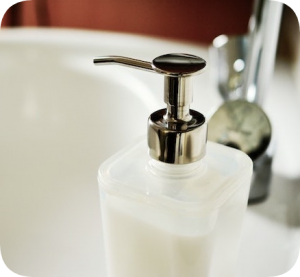 Making a $7.95 bottle of soap for Bath & Body Works (BBW) once took three months to accomplish. Parts traveled more than 13,000 miles across multiple countries to end up at the company’s Ohio distribution center, a difficult journey that the beauty brand sought to change in 2008. Years of working with local officials and skeptical suppliers resulted in BBW’s “beauty park” located outside of Columbus, an industrial campus that handles nearly every aspect of production. Featuring 10 manufacturers with millions of square feet of warehouse space and assembly lines, the campus employs 5,000 workers during peak production.
Making a $7.95 bottle of soap for Bath & Body Works (BBW) once took three months to accomplish. Parts traveled more than 13,000 miles across multiple countries to end up at the company’s Ohio distribution center, a difficult journey that the beauty brand sought to change in 2008. Years of working with local officials and skeptical suppliers resulted in BBW’s “beauty park” located outside of Columbus, an industrial campus that handles nearly every aspect of production. Featuring 10 manufacturers with millions of square feet of warehouse space and assembly lines, the campus employs 5,000 workers during peak production.
Thanks largely to its “reshoring” efforts, Bath & Body Works posted sales of $7.56 billion last year while enjoying $2 billion in annual revenue since 2019. BBW’s domestic production capabilities were especially useful during the pandemic, allowing it to easily move raw materials to create in-demand goods while competitors struggled with tangled global supply chains. What’s more, all of the company’s corporate executives live a short drive away from the Columbus campus, allowing them to fix problems and develop new products quickly. “That’s magical, especially when you need speed and agility,” said CEO Bath & Body Works Gina Boswell.
Many other companies are taking inspiration from BBW and bringing back production to the U.S. after enduring years of supply chain confusion. Along with increased funding from the federal government, experts predict that private and public investment in domestic manufacturing will amount to $3.5 trillion over the next decade. Still, not every company can be entirely domestic like BBW, which benefits from rolling out a large variety of scented products each year. “Economies of scope” such as these are much easier to reshore than “economies of scale” like semiconductor manufacturing, which rely on massive investments upfront. Even everyday products like smartphones, blenders, and backpacks are difficult to bring back due to highly specialized suppliers mainly located in Asia.
Questions:
- What are the benefits of Bath & Body Works’ “beauty campus” in Columbus, Ohio?
- Why do you think it is more difficult to reshore products based on economies of scope compared to ones based on economies of scale?
